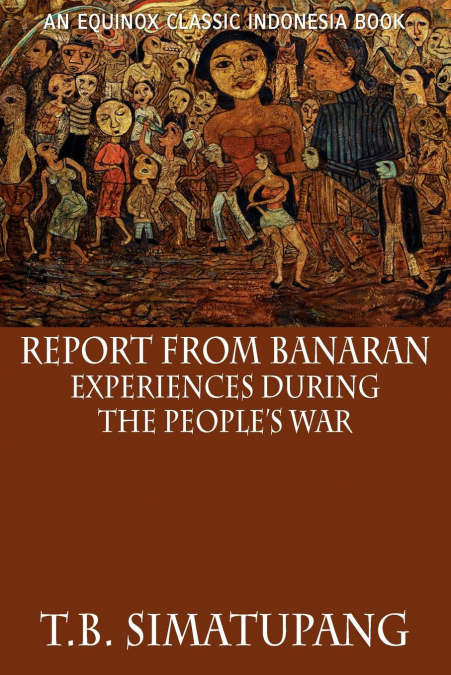
T.B. Simatupang / Benedict R.O'G. Anderson
 Donde los libros
Donde los libros
 Librería 7artes
Librería 7artes
 Librería Elías (Asturias)
Librería Elías (Asturias)
 Librería Kolima (Madrid)
Librería Kolima (Madrid)
 Librería Proteo (Málaga)
Librería Proteo (Málaga)
The Indonesian Revolution (1945-1950) was the occasion by which Indonesia achieved political independence. But the way in which this common twentieth century event came about, in the general violence and exaltation of a true revolution, made it far more important than that. Like the Mexican, Russian, Chinese and Vietnamese revolutions, the Indonesian Revolution has been the central event in its country's whole modern history. For this reason, any addition to the small stock of good English-language writings on the Revolution, like Report from Banaran, is doubly welcome, not only for what it can tell us about the event itself but also for what it can tell us about the Indonesian condition in modern times.General Simatupang - a Christian Batak with a Dutch education who helped lead a guerrilla war in the Javanese countryside, a man who while still in his twenties was simultaneously one of the principal founders of the Indonesian army and one of the key figures in four years of diplomatic negotiations with the Dutch-is well qualified by background and experience for his subject. Two short periods stand out in the history of the Indonesian Revolution: its first great explosion between August 1945 and mid-1946, and its climax - which is the main subject of Report from Banaran-between December 1948 and July 1949. The first set its stamp on the whole.The sudden surrender of the Japanese on August 15, 1945 created an immediate vacuum of power which neither the British (acting for the victorious Allies), nor the Dutch, nor the Republic, hastily proclaimed on August 17, could possibly fill. Out of the void emerged the most powerful single force of the ensuing Revolution, a mass movement of pemuda (youths) caught up in a fervent Indonesian nationalism and committed to an uncompromising perdjuangan (struggle) for freedom. Absolute idealism led naturally to violence, first against Japanese posts and British occupying forces, then to a more general assault on social groups privileged under the old Netherlands Indies order: Chinese, Eurasians, Christian Ambonese, traditional elites, and village and clan leaders through most of Sumatra and Java. - John R. W. Smail 3